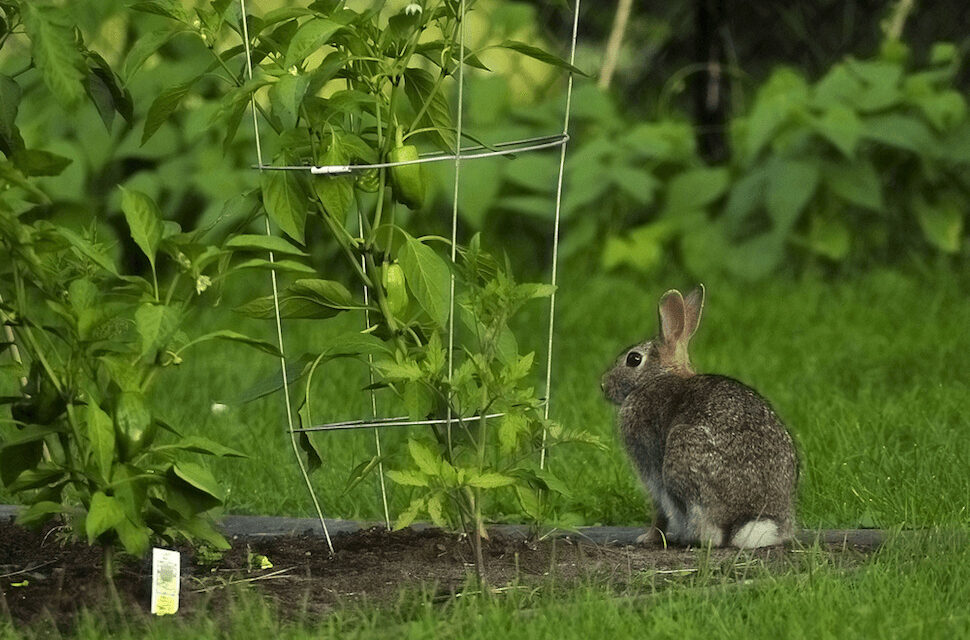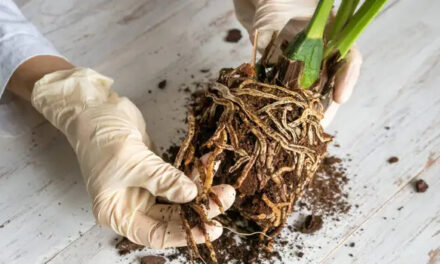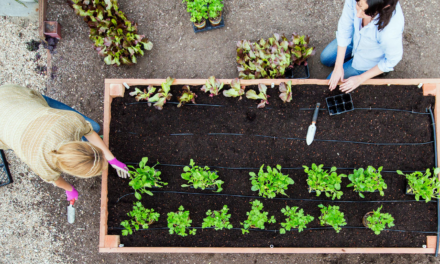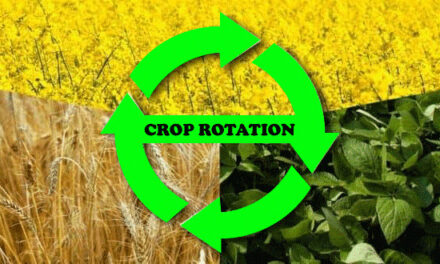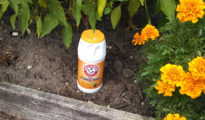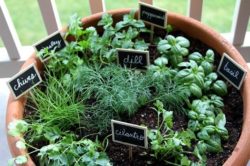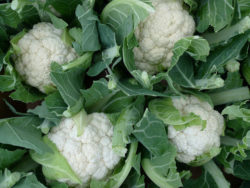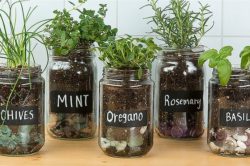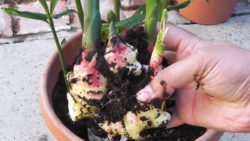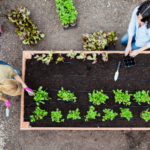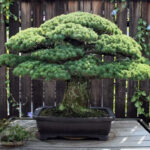Gardening is a fulfilling and relaxing activity for many, but it can also be quite frustrating when rabbits and squirrels start munching on your hard-earned fruits and vegetables. These cute critters might seem harmless, but they can wreak havoc on your garden, leaving you with little to show for your efforts. In this blog post, we'll take a look at some effective ways to get rid of rabbits and squirrels from eating your fruits and vegetables in the garden.
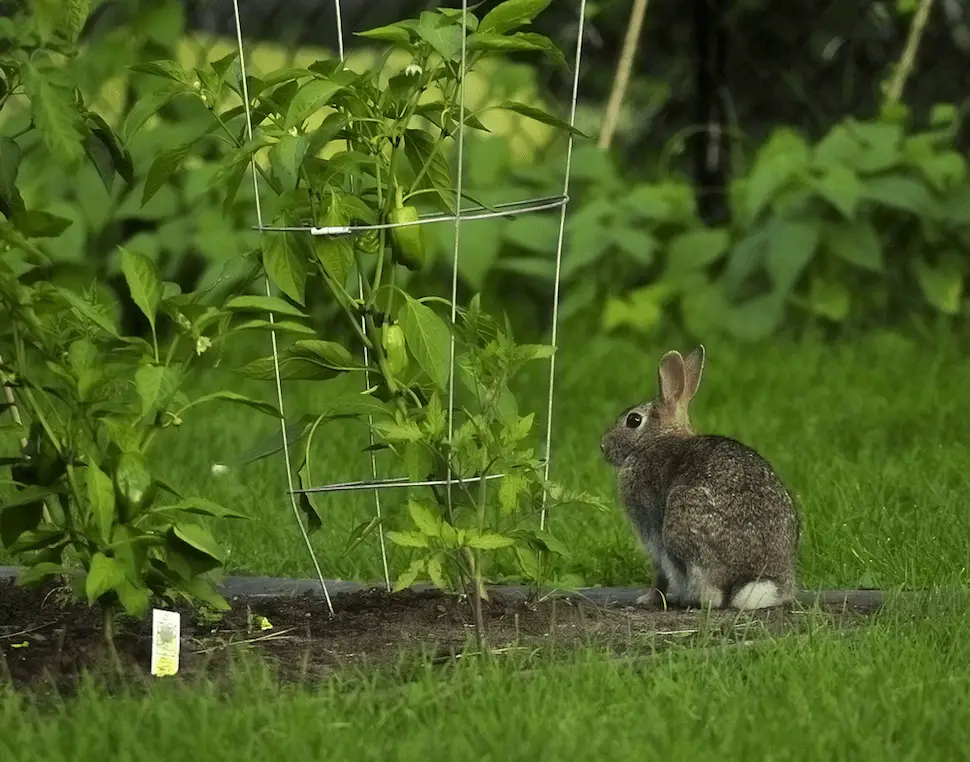
Understanding the Problem
Before we can start looking for solutions, we need to understand the problem. Both rabbits and squirrels are herbivores, meaning they eat plants. In the wild, they would forage for food, but in urban environments, they often turn to gardens as a food source. Rabbits and squirrels are most likely to go after fruits and vegetables that are easy to access, such as those growing close to the ground or in low-hanging branches.
Common Signs of Rabbit and Squirrel Damage
Rabbit damage is characterized by cleanly cut stems and leaves that have been nibbled down to the ground. They tend to eat a wide variety of plants, but are particularly fond of lettuce, spinach, and other leafy greens.
Squirrel damage is more varied, but they tend to go after fruits and nuts. They may take a bite out of a tomato or apple and then move on to the next one, leaving a trail of half-eaten produce behind. They also have a habit of digging up bulbs and seeds, and may even damage branches by chewing on them.
Preventive Measures
The best way to deal with rabbits and squirrels in the garden is to prevent them from getting there in the first place. Here are some preventive measures you can take:
Fencing
One of the most effective ways to keep rabbits and squirrels out of your garden is to fence it in. A 2-3 feet high fence made of chicken wire or hardware cloth is usually sufficient to keep rabbits out, while a taller fence may be needed to keep squirrels at bay. The fence should be buried at least 6 inches underground to prevent animals from digging under it.
Netting
Netting is another effective way to protect your plants from rabbits and squirrels. You can use bird netting or deer netting to cover your plants, making it difficult for animals to access them. However, you need to be careful to not wrap the netting too tightly around the plants, as it can damage them.
Raised Beds
Planting in raised beds is another effective way to keep rabbits and squirrels out of your garden. Raised beds are essentially containers that hold soil and plants above ground level. The sides of the bed can be made of wood or other materials, and should be at least 12 inches high to keep rabbits out.
Repellents
There are a variety of rabbit and squirrel repellents available on the market, including sprays, granules, and ultrasonic devices. These products work by emitting a scent or sound that is unpleasant to rabbits and squirrels, causing them to avoid the area. However, it's important to note that repellents are not always effective, and they may need to be reapplied frequently. Additionally, some repellents may not be safe for use around food plants, so be sure to read the label carefully before using them.
Companion Planting
Companion planting is the practice of planting different crops together in order to repel pests and improve soil health. Certain plants, such as marigolds, garlic, and onions, are known to repel rabbits and squirrels. By planting these companion plants alongside your fruits and vegetables, you can help deter these critters from coming into your garden. Additionally, some plants, such as lavender and mint, can also attract beneficial insects that prey on pests like rabbits and squirrels.
Scare Tactics
Scare tactics can also be effective in deterring rabbits and squirrels from your garden. You can use scarecrows, aluminum foil strips, or even old CDs hung in trees to reflect light and make noise. Another option is to use motion-activated sprinklers that shoot water when animals get too close. However, it's important to note that scare tactics may only work for a short period of time. Animals can become habituated to these devices and may eventually ignore them.
Harvesting Frequently
Another way to prevent damage from rabbits and squirrels is to harvest your fruits and vegetables frequently. If you pick your produce as soon as it's ripe, there will be less for animals to munch on. Additionally, harvesting frequently can help keep your plants healthy and productive.
Keep Your Garden Clean
Keeping your garden clean and tidy can also help deter rabbits and squirrels. These animals are attracted to areas with plenty of cover, so removing weeds, fallen leaves, and other debris can make your garden less appealing to them. Additionally, you should remove any fruits or vegetables that have fallen to the ground, as they can attract pests.
Dealing with an Infestation
If you already have a rabbit or squirrel infestation in your garden, there are several steps you can take to get rid of them:
Trapping and Relocating
Live trapping is a humane way to remove rabbits and squirrels from your garden. You can purchase traps online or from a garden center, and bait them with apples, carrots, or other fruits and vegetables.
Once you've caught a rabbit or squirrel, you should relocate it to a safe and appropriate location at least 5 miles away from your garden. It's important to note that it is illegal to release animals into the wild in some areas, so be sure to check your local laws before attempting to trap and relocate animals.
Repellents
As mentioned earlier, repellents can be effective in deterring rabbits and squirrels from your garden. However, if you have an infestation, you may need to use stronger repellents, such as coyote or fox urine, which can be purchased online or from a garden center. These products work by mimicking the scent of predators, causing rabbits and squirrels to avoid the area. However, it's important to note that these products may also repel other animals, including pets and wildlife.
Predators
Another way to get rid of rabbits and squirrels is to introduce predators into your garden. This can include birds of prey, such as hawks and owls, or even domesticated cats. However, it's important to note that introducing predators into your garden can have unintended consequences. For example, domesticated cats can also prey on birds and other wildlife in the area, while birds of prey may not be able to differentiate between a pest and a beneficial animal.
Scare Tactics
Scare tactics can also be effective in getting rid of rabbits and squirrels from your garden. As mentioned earlier, scarecrows, aluminum foil strips, and motion-activated sprinklers can all be used to deter these animals. However, if you have an infestation, you may need to use multiple scare tactics at once to make your garden less appealing to pests.
Dealing with rabbits and squirrels in the garden can be a frustrating experience, but there are several effective ways to prevent and manage infestations. By using a combination of preventive measures, such as fencing and netting, and dealing with an infestation using trapping and repellents, you can protect your fruits and vegetables from these cute but destructive critters.
Remember to always be humane when dealing with pests in your garden, and to be mindful of the potential unintended consequences of introducing predators or using strong repellents. With a little patience and persistence, you can successfully protect your garden and enjoy the fruits of your labor. Happy gardening!

